Dr Rosemarie Gannon (PhD), Project Manager, All-Island Cancer Research Institute, provides an overview of a major international cancer meeting recently held in Dublin
On 25-26 April, the inaugural Joint Euro-American Forum on Cancer was hosted amid the beautiful surroundings of Farmleigh House in Dublin. The Forum brought together world-leading cancer experts to explore greater cooperation between Europe and the US in order to tackle the growing global cancer crisis.
The Forum was jointly hosted by the Irish Government’s Department of Health, the All-Island Cancer Research Institute (AICRI) and the National Cancer Control Programme, in collaboration with the European Cancer Organisation (ECO), the US National Cancer Institute, the American Society for Clinical Oncology, and the European School of Oncology.
Over the two days, the Forum saw globally recognised leading clinicians, academics, cancer patient advocates, and key, relevant policymakers and political figures, come together to shape and accelerate a transatlantic agenda for advancing cancer care and prevention. There was a particular focus on lung cancer and cancer inequalities at this international gathering.
All-island
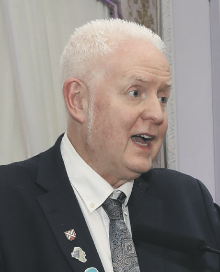
Significant benefits of the island of Ireland/US cancer collaboration were showcased at the event. The Forum highlighted the vast benefits of the hugely successful 25-year ‘Ireland – Northern Ireland – US National Cancer Institute Cancer Consortium’, a cooperative partnership between cancer experts on the island of Ireland and their American counterparts. Prof Mark Lawler, Professor of Digital Health at Queen’s University Belfast, highlighted that this unique partnership has been transformative. He referred to data that shows 35,000 patients on the island of Ireland participated in clinical trials, saving thousands of lives and improving the quality-of-life of thousands more; a 15 per cent improvement in cancer survival across the island; and a 550 per cent increase in cancer research quality between Ireland and the North, delivering both health and economic impact island-wide.
Funding
Opening the Forum, Minister for Health Stephen Donnelly pointed out that the Irish Government’s commitment to tackling cancer has been shown through substantial investment of over €50 million into cancer treatment and screening through the National Cancer Strategy since 2020. This investment has led to improved treatment and screening services, supporting recruitment of over 400 staff. Minister Donnelly highlighted that survival rates in Ireland have improved by almost 50 per cent compared to two decades ago. He informed delegates that spend on oncology drugs in the past three years has been over €600 million and included funding for 61 new cancer drugs.
While progress has been made, the Minister also said that more needs to be done in Ireland including putting an infrastructure in place to expand involvement in clinical trials. More investment in cancer research to produce and provide better treatments is required. Funding for preventative measures is also needed.
Minister Donnelly emphasised the importance of all-island collaboration in his address. He said: “It’s clear to us all that an all-island approach to healthcare makes sense. We have all-island centres of excellence already in place in Belfast and Dublin. The expansion of the North-West Cancer Centre in Altnagelvin in Derry has been a great success. Over 1,400 patients have been referred there for radiation therapy treatment. I really welcome the discussion about cross-border and all-island cooperation on cancer. I know Minister [for Health in Northern Ireland Robin] Swann has a keen interest in this as well.”
He went on to say “as cancer treatments become more specialised and complex there will be further opportunities to develop services on an all-island basis. This is a priority objective of the national cancer strategies on both sides of the border.”
It’s clear to us all that an all-island approach to healthcare makes sense
European Cancer Pulse Ireland report
The European Cancer Pulse report for Ireland, a project by the ECO in collaboration with the Irish Cancer Society, aimed at identifying and addressing cancer disparities in Ireland was launched at the Forum. The European Cancer Pulse project is an online tool that captures and tracks cancer inequalities and their resolution across Europe. It acts as a one-stop online resource to compare and contrast what is happening in different countries and producing a series of reports that provide the cancer intelligence required to inform action.
Inequality
Data from ECO’s European Cancer Pulse tracker shows signs of progress, but also highlights significant cancer inequalities faced by people living in the most deprived areas of Ireland. Ms Averil Power, Irish Cancer Society CEO, who spoke during the session on cancer inequalities, said people in Ireland do not have equal access to cancer care and services.
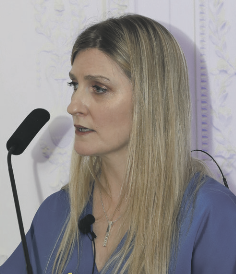
“Inequality between public and private patients is growing, particularly in terms of access to new medicines,” she said. “The lack of Government investment in Ireland’s current National Cancer Strategy means target waiting times for cancer tests are consistently being exceeded.”
Ms Power said it is very positive that the uptake of Ireland’s current screening programmes is higher than the EU average. However, she pointed out BowelScreen has not been expanded as planned. “We need to ensure that every Irish person, regardless of their background or income, has the best possible chance of surviving cancer,” she said. “Without proper multi-annual funding for the National Cancer Strategy, not only are Ireland’s cancer outcomes unlikely to improve, but we are at serious risk of going backwards.”
ECO President Prof Csaba Dégi (PhD) said: “We are delighted to be at the Joint Euro-American Forum on Cancer to present the latest data from the European Cancer Pulse. Today’s report makes it clear where there have been successes and where improvements can be achieved. With European elections in June, ECO calls on national and European policymakers to deliver on the promises of Europe’s Beating Cancer Plan.”
Challenges
Forum attendees heard that cancer remains the single biggest killer in Ireland, responsible for 9,620 deaths, or 30 per cent of all deaths, annually. They were told that Ireland needs to be more ambitious in preventing cancer, with the country doing well on human papillomavirus (HPV) vaccination, but falling behind on its targets for tobacco and alcohol consumption. The use of electronic smoking devices, binge-drinking by young people, and obesity rates are much higher here than elsewhere in the EU, the meeting heard. The fact that Ireland is falling behind its targets on tobacco is particularly disappointing given this year marks the 20th anniversary of the introduction of the workplace smoking ban in Ireland.
Anniversary
The Tánaiste Micheál Martin was recognised with an award at the Forum for his work in introducing the ban in March 2004. Ireland was the first country in the world to introduce this important public health policy, which has since been adopted by 78 countries worldwide. Speaking at the event, the Tánaiste emphasised the need for an All-Island Cancer Institute, with a broader remit than the AICRI, which would build on the work of the hugely successful Ireland-Northern Ireland-US National Cancer Institute Cancer Consortium which celebrates its 25th anniversary this year. Initiatives such as the AICRI, a partnership of 10 universities on the island, have highlighted the quality of cancer research being performed and how working across the island can deliver better outcomes for cancer patients.
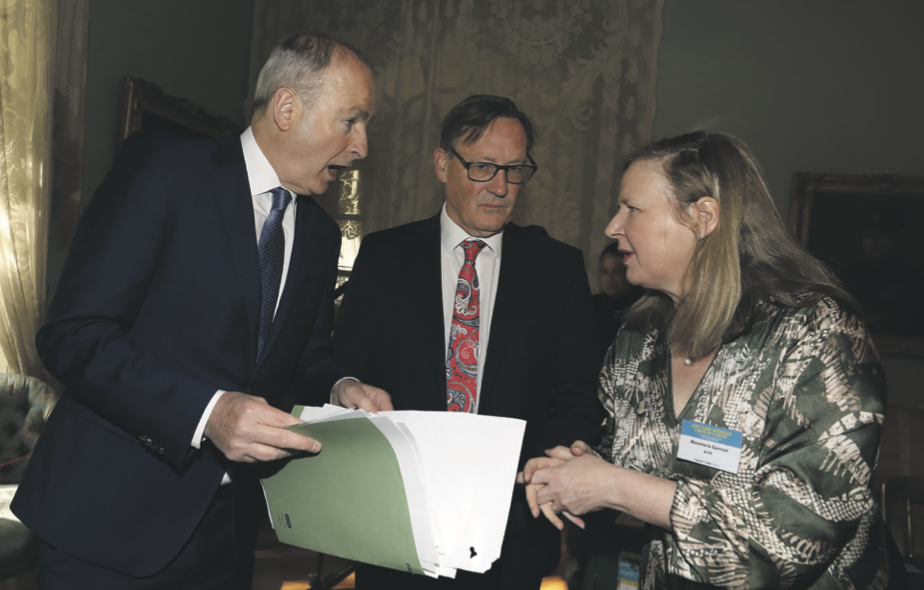
Manifesto
Reference was made at the Forum to the ECO’s recommendations from its manifesto for 2024 which, if implemented, would have significant impact. The manifesto has garnered support from over 50 politicians across Europe, including representatives from both Northern Ireland and the Republic of Ireland. The recommendations include:
- A minimum age for tobacco sales of 21 years old (‘tobacco 21’) to achieve a European tobacco-free generation.
- Regular public reporting on progress on EU recommendations on cancer screening.
- Initiatives to eliminate vaccine-preventable cancers caused by HPV and hepatitis B, addressing the cancer workforce crisis, which is a threat to health system resilience.
- Legal protections for cancer survivors so that they need not declare their disease to financial service providers.
Right to be forgotten
EU Commissioner for Financial Services, Financial Stability and Capital Markets Union, Ms Mairead McGuinness, delivered a keynote address on ‘the right to be forgotten’ for cancer survivors. She emphasised the financial aspect of cancer and her remarks focused on the need to ensure access to financial services for cancer survivors. Commissioner McGuinness said: “We do think of cancer as a health issue, which of course it is. But it can also impact individuals and families when it comes to accessing financial products, like mortgage protection policies. Financial inclusion requires that everybody should be able to access appropriate financial products. But we know that cancer survivors too often face financial exclusion. And again a cancer diagnosis brings so many challenges.”
Commissioner McGuinness made the important point that policymakers need to do what they can to ensure cancer patients and survivors focus on what is important and that is their health and family. She highlighted that a history of cancer can make it hard, more expensive, or even impossible to access certain financial products and services. As such, cancer survivors should not face unnecessary burdens when it comes to accessing financial services. Commissioner McGuinness emphasised the need to embrace the concept of the right to be forgotten. She said: “This is about enabling access to financial services for those who have recovered from cancer.” She concluded by recommending an EU code of conduct where every member state would have a mechanism in place which would enable cancer survivors to access financial products in their home country.
The lack of Government investment in Ireland’s current National Cancer Strategy means target waiting times for cancer tests are consistently being exceeded
Resolution
The Euro-American Forum announced the passing of the 2024 resolution on European-American collaboration on cancer. Under this resolution, the Euro-American Forum on Cancer believes:
- Impactful discoveries and improvements invariably involve the cooperation of many minds.
- Abundant opportunities exist for further developing systems and infrastructure for US-EU cooperation in the field of cancer and that this should be developed by the respective administrations coming into office following US Presidential and European Parliament elections taking place in 2024.
Under this resolution, the Euro-American Forum on Cancer recommends:
- Following the European Parliament elections of 2024, Europe’s Beating Cancer Plan be completed, refreshed for new developments in science, and its goal-oriented approach to cancer control be expanded.
- Refreshment of Europe’s Beating Cancer Plan, and expansion of goals, should include the formal establishment of shared goals and projects with the US ‘cancer moonshot’.
The recommendations address the impending cancer challenge that is rapidly approaching. This resolution will enhance transatlantic co-operation, with the island of Ireland acting as a key bridge between Europe and the US.
Overall, the inaugural Joint Euro-American Forum on Cancer was a very successful and engaging event. It was a wonderful opportunity for Ireland to play host to some of the world’s leading cancer experts and explore pathways to greater cooperation between Europe and the US in tackling cancer. On the eve of the Forum, Daithí de Róiste, then Lord Mayor of Dublin, welcomed Forum attendees to a reception in the Mansion House in Dublin. Delegates were also invited to attend the Forum’s formal dinner, which was held in St Patrick’s Hall at Dublin Castle at the end of the first day. The performance by Celine Byrne of Danny Boy was a real post-dinner treat for everyone in attendance.

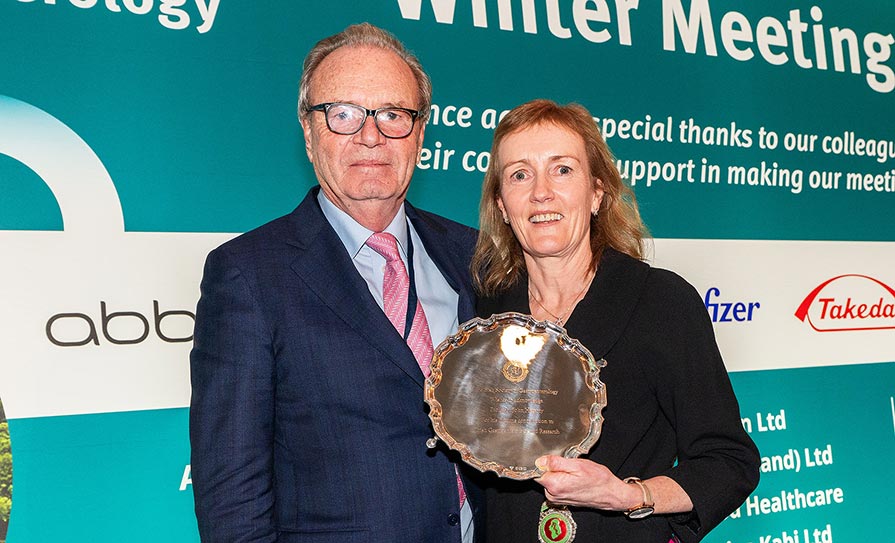
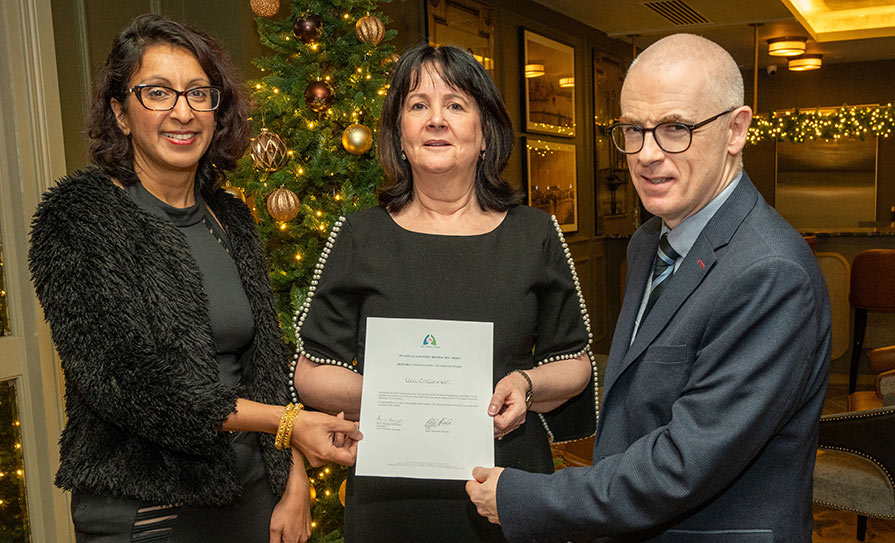





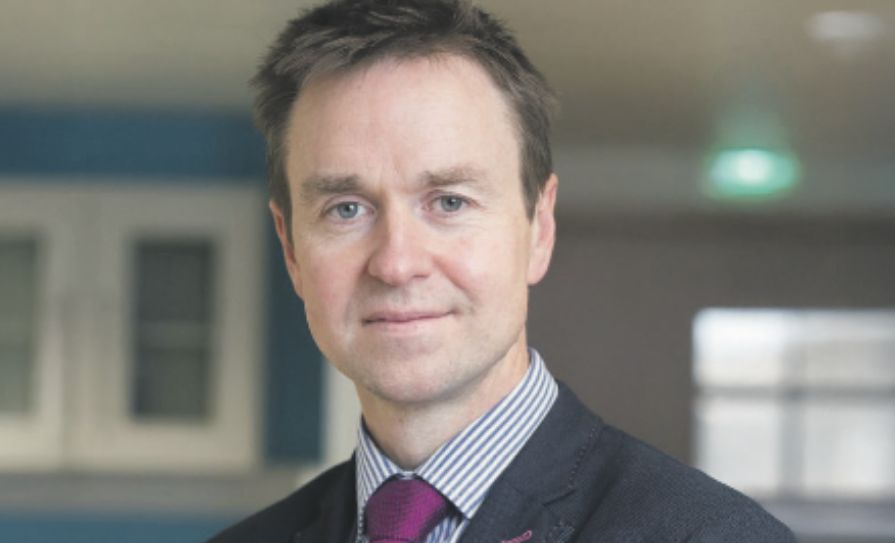




Leave a Reply
You must be logged in to post a comment.